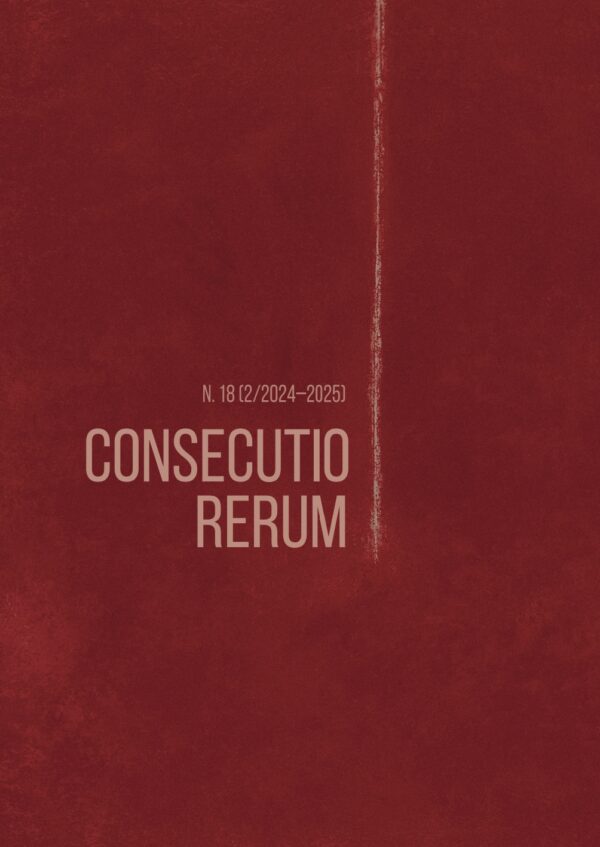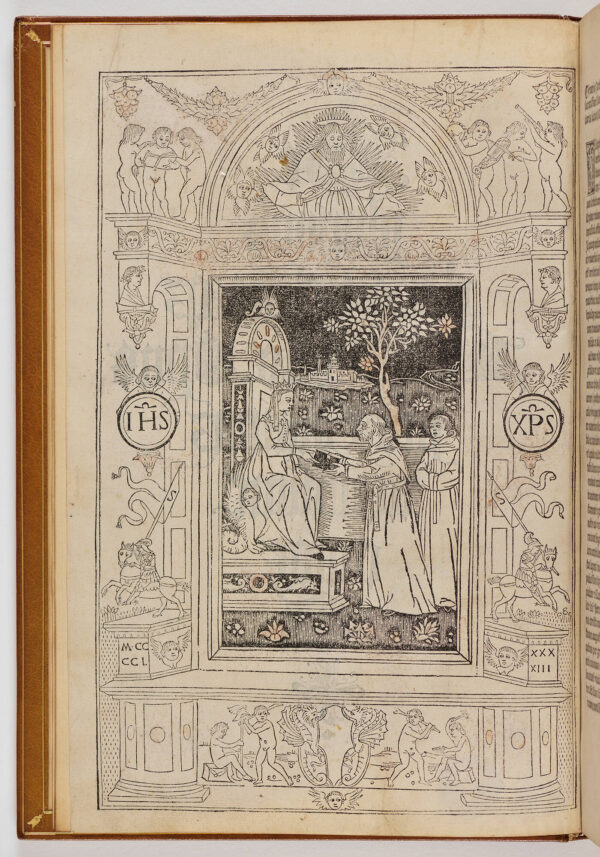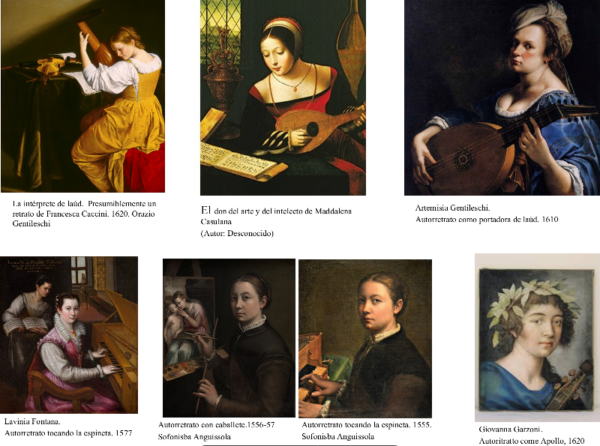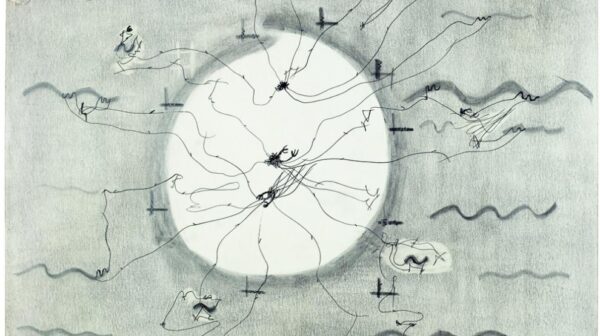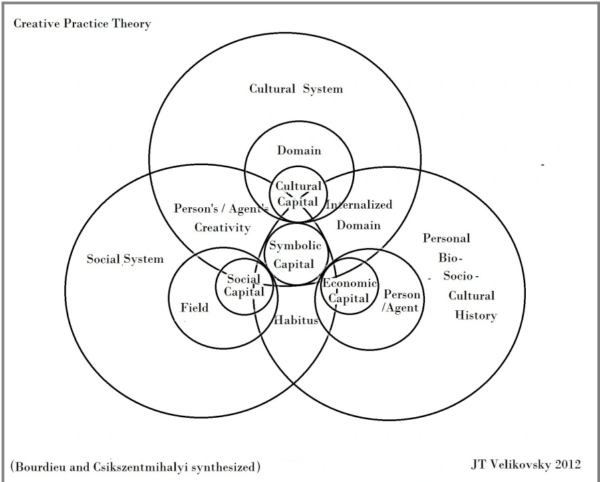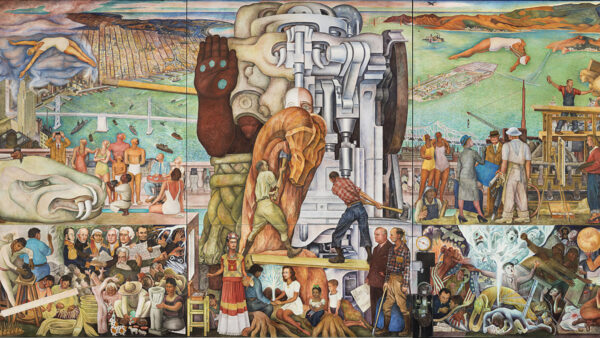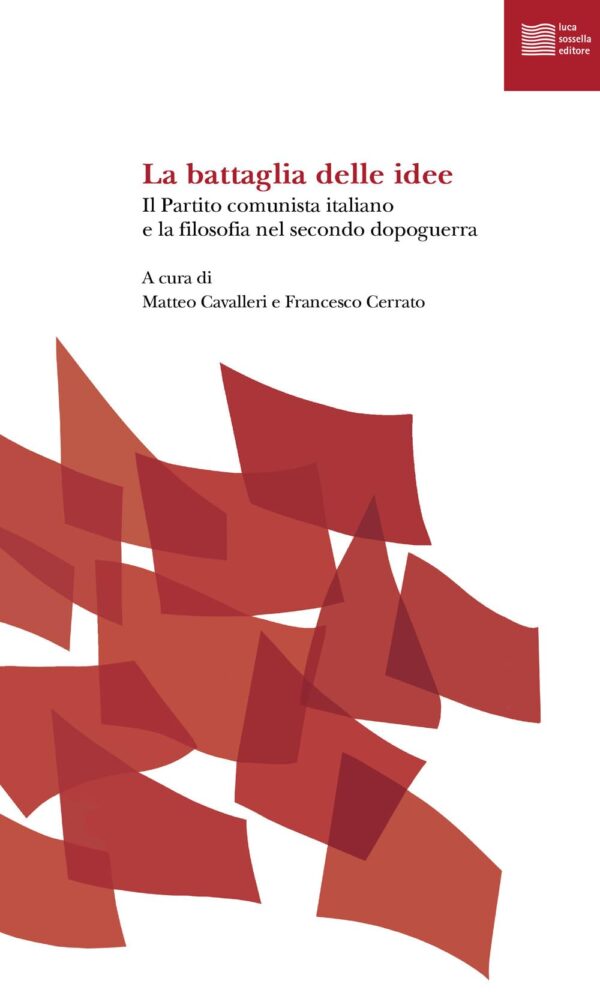Pagine
Condividi e segnala
Tag
- Althusser
- Antropologia
- Baumgarten
- Bourdieu
- Conceivability of Nothingness
- Conciliation
- corpo
- Derrida
- Dialectics
- Difference
- distinzione
- Europe
- Expression
- giudizio
- Grace
- Habitus
- Heidegger
- Hobbes
- Kant
- linguaggio
- Lyotard
- marxismo
- Medieval Aristotelianism
- Metaphysics
- Nature
- Negative
- Nichts
- nihil
- Nihilism
- nihil negativum
- nihil privativum
- Non-identical
- Nothing
- Nothingness
- onore
- politica
- postmoderno
- pratica
- riconoscimento
- Smith
- solitudine
- Sovranità
- Spinoza
- Thomas Aquinas
- Western Ontology
-
Articoli recenti
Link
Archivi categoria: NUMERO 18
Indice
Monografica I – Constelaciones femeninas del Humanismo italiano:
redes culturales, debates sobre el género y autoría artística (a cura di Juan Manuel Forte, Nuria Sánchez Madrid, Valerio Rocco)
Juan Manuel Forte, Nuria Sánchez Madrid, Valerio Rocco, Introducción
Mercedes Arriaga Flórez & María Mascarell García, Público y privado en los escritores filóginos del Cinquecento italiano
José Luis Egío, Isotta Nogarola y Teresa de Cartagena. Dos tentativas femeninas de acceso a la República masculina de las letras por la puerta estrecha de la teología
Juan Manuel Forte, Resistir y combatir a Aristóteles: Cristina de Pizán y Lucrecia Marinella
Nuria Sánchez Madrid, Conversaciones
… Continua a leggere
Pubblicato in Indice, NUMERO 18
Lascia un commento
Introducción
Juan Manuel Forte, Nuria Sánchez Madrid, Valerio Rocco
Juan Manuel Forte (UCM), Nuria Sánchez Madrid (UCM) y Valerio
Rocco (CBA/UAM)
Pubblicato in Monografica I, NUMERO 18
Lascia un commento
Público y privado en los escritores filóginos del Cinquecento italiano
Mercedes Arriaga Flórez & María Mascarell García
Mercedes ArriagaFlórez: Universidad de Sevilla (marriaga@us.es; ORCID: 0000-0001-6039-6949); MaríaMascarell García: Universidad de Córdoba (mmascarell@uco.es; ORCID: 0000-0003-2717-2796).
Public and Private in the Philogynist Writers of Italian Cinquecento
Abstract: A series of galleries of illustrious women and Renaissance philogynous treatises by little-known and rarely studied writers – such as Antonio Cornazzaro, Bartolomeo Goggio, Vespasiano da Bisticci, Pompeo Colonna, Luigi Dardano, Lodovico Dolce, and Paolo Giovio – support the social and political utility and convenience of women projecting themselves and acting in the public sphere. With the intention of promoting new ideas about … Continua a leggere
Pubblicato in Monografica I, NUMERO 18
Lascia un commento
Isotta Nogarola y Teresa de Cartagena. Dos tentativas femeninas de acceso a la República masculina de las letras por la puerta estrecha de la teología
José Luis Egío
Departamento Filosofía y Sociedad, UCM (jegio@ucm.es; ORCID: 0000-0002-9256- 8490).
Isotta Nogarola and Teresa of Cartagena. Two female attempts to enter the male Republic of letters through the narrow door of theology
Abstract: This article offers a comparative perspective on two of the main theological-philosophical works written by women in the cultural context of the Christian Latin Mediterranean in the mid-fifteenth century: the Latin contentio De Pari aut Impari Evae atque Adae Peccato, written by the Veronese humanist Isotta Nogarola (1418-66) in 1451, and the treatise Admiraçion operum Dey, written around 1475 by … Continua a leggere
Pubblicato in Monografica I, NUMERO 18
Lascia un commento
Resistir y combatir a Aristóteles: Cristina de Pizán y Lucrecia Marinella
Juan Manuel Forte
Universidad Complutense Madrid (jmfortem@ucm.es; ORCID: 0000-0003-1344- 552X).
Resisting and Fighting Aristotle: Christine de Pizan and Lucrezia Marinella.
Abstract: From the 13th century onwards, Aristotle’s authority dominated the scholastic and university spheres for several centuries. Furthermore, the Stagirite became a key reference point in discussions about biological, characterological, and moral differences between men and women. However, these differences were often perceived as biased, with several female writers criticising sexist elements in Aristotle’s works. For example, during the early Renaissance, Christine de Pizan offered a defensive argument against Aristotle, drawing mainly on her own life experience. Two … Continua a leggere
Pubblicato in Monografica I, NUMERO 18
Lascia un commento
Conversaciones sobre el género en elCinquecento italiano: contrastes y afinidades entre BaldassarreCastiglione y Giulia Bigolina
Nuria Sánchez Madrid
Dpto. De Filosofía y Sociedad UCM/GINEDIS/INSTIFEM (nuriasma@ucm.es; ORCID: 0000-0003-4273-5948).
Dialogues on Gender in Italian Cinquecento: Contrasts and Affinities between Baldassarre Castiglione and Giulia Bigolina
Abstract: This paper focuses on the different philogyny approaches that Baldassarre Castiglione and Giulia Bigolina displayed in the Italian Cinquecento intellectual space. First, I cast light on the strengths and weaknesses that the conversations of both sexes in the book III of The Courtier by Castiglione mean for fostering women’s emancipation. Second, I address the novel Urania by Giulia Bigolina, the first novel written by a woman in Italian literature, which … Continua a leggere
Pubblicato in Monografica I, NUMERO 18
Lascia un commento
Mujeres artista. Influencias y relaciones desde la Italia de Francesca Caccini
Begoña Fernández Cabaleiro
Departamento de Filosofía y Sociedad, Facultad de Filosofía, Universidad Complutense de Madrid (bfcabaleiro@filos.ucm.es; ORCID: 0000-0002-4644-5799).
Women artists. Influences and relationships from Francesca Caccini’s Italy
Abstract: Francesca Caccini premiered La liberazione di Ruggiero in 1625, considered the first opera composed by a woman, the only one that survives of the five created by Francesca, also the first Italian opera performed outside Italy. In June 2024, four hundred years later, it premiered in Madrid with the collaboration of the Teatro Real, generating a new reflection on women in cultural and artistic creation in the 16th/17th centuries, a … Continua a leggere
Pubblicato in Monografica I, NUMERO 18
Lascia un commento
Spinoza. Problématisations contemporaines
Cécile Hellian
CESSP – EHESS (cecile.hellian@gmail.com; ORCID : 0009-0004-2021-6375).
Pubblicato in Monografica II, NUMERO 18
Lascia un commento
“Ne pas rire, ne pas juger, ne pas haïr mais comprendre”: Spinoza et la question des différences aujourd’hui
Donna Grace Avome Ndoutoume
Ens Lyon, IHRIM (nolendonna2018@gmail.com; ORCID: 0009-0001-7859-1491).
“Don’t laugh, don’t judge, don’t hate but understand”: Spinoza and the question of differences today.
Abstract: To study identity today is also to reflect on the question of differences, and in particular on how others view the multiple forms of dissimilarity that are continually being constructed in existence. Indeed, the singularization of conatus is not based solely on bodily determinations (visible bodily differences) or the nature of desires, affects, experiences, existing comforts and inconveniences and so on. It’s also shaped by all the other realities that contribute to … Continua a leggere
Pubblicato in Monografica II, NUMERO 18
Lascia un commento
L’incorporation du discours chez Bourdieu. Vers une interprétation spinoziste
Cécile Hellian
CESSP – EHESS (cecile.hellian@gmail.com; ORCID : 0009-0004-2021-6375).
The Incorporation of Discourse in Bourdieu’s Work: Towards a Spinozist Interpretation
Abstract: It’s rare that bodies succeed to change after a decision formulated in language. Others’ prescriptions about our actions often fail to product an effect up to our expectations. Regularly, Pierre Bourdieu notes this failure of the body’s modification through words. He also criticizes for example Sartre, some Marxists or feminists who fail to change their practices deeply, for not taking into account the impotence of discourses. Being awareness of a problem doesn’t allow to change radically practices. … Continua a leggere
Pubblicato in Monografica II, NUMERO 18
Lascia un commento
Spinoza et Deligny. Réseaux, écritures, itinéraires
Pierre-François Moreau
École normale supérieure de Lyon (moreau.pf@free.fr; ORCID : 0009-0008-9056- 4884).
Spinoza et Deligny. Réseaux, écritures, itinéraires
Abstract: Deligny’s “tentatives” could be read within a Spinozist framework. Conversely, Deligny’s experience can lead to questions being raised about Spinoza’s practice and system. This can be seen in three conceptual and existential pairs: network/institution; publication/writing; nature/itinerary.
Keywords: Singular; Individual; Détermination; Work; Opportunity.… Continua a leggere
Pubblicato in Monografica II, NUMERO 18
Lascia un commento
Philosopher comme un triangle. Ou comment géométriser quelques problèmes spinozistes
Sévérac Pascal
IREPH – IHRIM (pseverac@yahoo.fr; ORCID: 0000-0001-8808-4111).
Philosophy as a triangle. Or how to geometrise some Spinozist issues.
Abstract: We set out to revisit some of the problems of Spinozism with the help of a ruler and a compass, and with the aid of a triangle (and a bit of a circle too). In this way, we try to analyse the relationships between essence and property, between general singularity and particular singularity, and between mode and attribute.
Keywords: Essence; Property; Singular; Distinction; Attribute.… Continua a leggere
Pubblicato in Monografica II, NUMERO 18
Lascia un commento
From Glory to Worship. Recognition in Thomas Hobbes’s ‘De cive’
Francesco Toto
Università degli Studi “Roma Tre” (francesco.toto@uniroma3.it; ORCID: 0000-0002- 3080-5905).

Abstract: This article is the first part of a comparison between Hobbes’s and Spinoza’s theories of recognition as they appear in De Cive and the Tractatus theologico-politicus. It examines the use of the concepts of glory and honor in De Cive, revealing two distinct levels of Hobbes’s theory. In the first and second sections of De Cive, glory is presented mostly as a destabilizing passion that leads to competition, undermines social bonds, and challenges any moral or political solution to the problem of … Continua a leggere
Pubblicato in NUMERO 18, Varia
Lascia un commento
“Latet anguis sub herba”. Spinozismo e potenza di Dio in alcuni dibattiti teologici
Fiormichele Benigni
Università di Roma ‘Tor Vergata’ (fiormichele.benigni@gmail.com; orcid: 0000- 0003-0626-4149).
“Latet anguis sub herba”. Spinozism and God’s power in some theological debates.
Abstract: The article examines some academic theses discussed by German theologians between the 17th and 18th centuries, which focus on Spinoza’s ‘theology’. In particular, the topic of divine power allows Spinozism to be considered as a metaphysics that forces us to redefine the relationship between God’s attributes. In the reading of many theologians, the primacy of potentia Dei is, on the one hand, a paradigm that has immediate consequences for political theory; on the … Continua a leggere
Pubblicato in NUMERO 18, Varia
Lascia un commento
Enigma o spiegazione? Le due anime della servitù volontaria e un’ipotesi compatibilista
Luca Micaloni
Università Sapienza di Roma, Dipartimento di Scienze Politiche (luca.micaloni@uniroma1.it).
Enigma or Explanation? The Two Faces of Voluntary Servitude and a Compatibilist Hypothesis
Abstract: This article explores the conceptual and theoretical tensions inherent in the notion of voluntary servitude, as formulated by Étienne de La Boétie. The Discours de la servitude volontaire is read through a dual lens: as an enigmatic formulation of political submission freely chosen by the dominated, and as a text that simultaneously gestures toward sociological and psychological explanations of obedience. The paper investigates whether a genuinely free will can wilfully choose … Continua a leggere
Pubblicato in NUMERO 18, Varia
Lascia un commento
La manifestazione dell’essenza: la fantasmagoria del capitale tra ipertrofie soggettiviste e reificazioni de-storicizzanti
Sebastiano Taccola
Ricercatore indipendente (sebastianotaccola@gmail.com; ORCID: 0000-0002-1863- 084X).
The Manifestation of Essence: The Phantasmagoria of Capital between Subjectivist Hypertrophies and De-Historicizing Reifications
Abstract: Following the conceptual directions outlined by Adorno in a university course dedicated to the concept of metaphysics, this article argues for the centrality of the reciprocal mediation between essence and appearance as a key to critically interpreting our contemporary condition. Today’s world appears increasingly torn between a spectral social objectivity and an ahistorical hypertrophy of the human subject. This condition is the effect of the phantasmagoria of capital. Returning to Marx’s critique of the fetish … Continua a leggere
Pubblicato in NUMERO 18, Varia
Lascia un commento
Mercato mondiale, Stato-nazione, nazionalismo economico in Gramsci. Proposte per una rilettura
Giuliano Guzzone
Ricercatore indipendente (guzzonegiuliano@gmail.com; ORCID: 0009-0004-0277- 5763).
World Market, Nation-State, Economic Nationalism in Gramsci. Proposal for a re-reading
Abstract: This article intends to reconsider Gramsci’s thought about the connection between (capitalist) world market and nation-state, by paying attention to the issue of economic nationalism. It is argued that Gramsci, in his Prison Notebooks, outlined a more complex and dialectical vision of the economic nationalism, as a vehicle of relatively innovative instances in a framework of creative preservation of the bourgeois hegemony. This result is based on a rethinking of the relation between industry and territory, on … Continua a leggere
Pubblicato in NUMERO 18, Varia
Lascia un commento
A Whiteheadian Approach to the Divide Between Organisms and Machines
Federico Giorgi
University of Namur, Belgium (federico.giorgi@unamur.be; ORCID: 0000-0002- 7154-2013).
Abstract: The essay takes a critical stance towards the widespread thesis that life is computable or even reproducible on a medium other than a biological body. The insights of some opponents of that thesis were somehow anticipated by Whitehead in his metaphysical works, and the essay is intended to stress the relevance of Whitehead’s processual ontology to the debate on artificial life. Some of Whitehead’s notions, such as the mental pole and the living person, help significantly to account for the divide between organisms and machines. Two … Continua a leggere
Pubblicato in NUMERO 18, Varia
Lascia un commento
A Systemic, Structural Perspective on Energy Poverty through Iris M. Young’s “Five Faces of Oppression”
Eleonora Piromalli
Dip. di Filosofia, Università di Roma “Sapienza” (eleonora.piromalli@uniroma1.it; ORCID: 0000-0001-9281-8712).
Abstract: Energy poverty, initially explored in the 1970s in the UK in response to rising energy prices and the struggles of low-income households, is often analysed through distributive and techno-economic perspectives. This article adopts an intersectional and structural approach, applying Iris Marion Young’s framework of the “five faces of oppression” ‒ exploitation, marginalisation, powerlessness, cultural imperialism, and violence ‒ to provide a deeper understanding of energy poverty. Thereby, the article reveals how energy poverty is deeply rooted in systemic inequalities and cannot be fully addressed … Continua a leggere
Pubblicato in NUMERO 18, Varia
Lascia un commento
Sull’intreccio perverso fra astrazione economica e cognitiva
Lorenzo d’Auria
Ricercatore indipendente (lorenzo.dauria@ymail.com; ORCID: 0000-0002-2254- 2573).
On the Perverse Connection Between Economic and Cognitive Abstraction
Abstract: We are witnessing a symbiotic relationship between two self-accretion processes: the accumulation of capital, on one side, and the accumulation of knowledge, on the other. Both have a similar underlying structure: an abstract pole assumes a dominant role over a concrete pole; in both cases, the abstract side subsumes and uses the concrete one for its ends; it becomes (as taught by Marx in Capital) the true subject of a system capable of potentially unlimited growth. In the … Continua a leggere
Pubblicato in NUMERO 18, Varia
Lascia un commento

